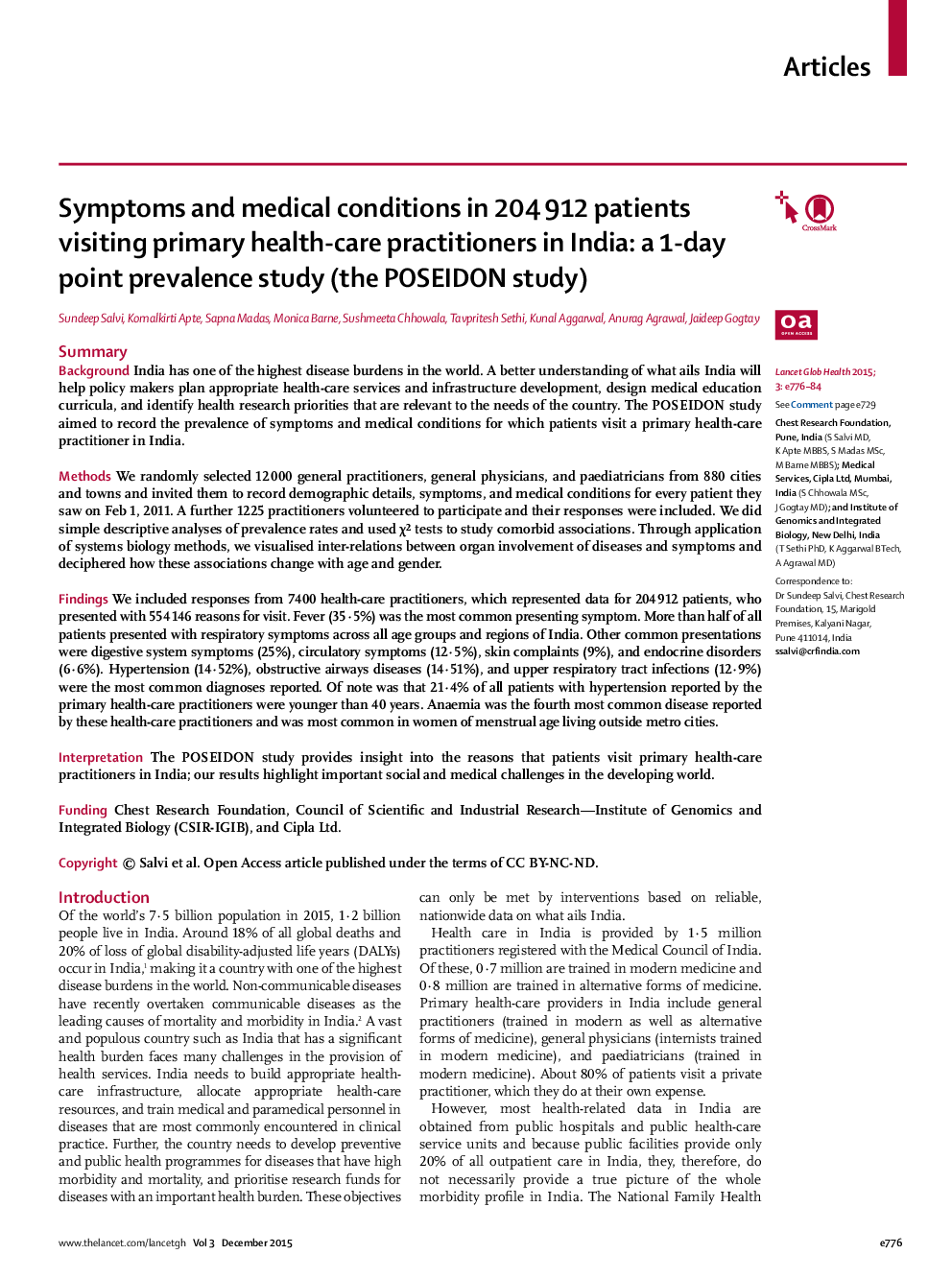| Article ID | Journal | Published Year | Pages | File Type |
|---|---|---|---|---|
| 3408994 | The Lancet Global Health | 2015 | 9 Pages |
SummaryBackgroundIndia has one of the highest disease burdens in the world. A better understanding of what ails India will help policy makers plan appropriate health-care services and infrastructure development, design medical education curricula, and identify health research priorities that are relevant to the needs of the country. The POSEIDON study aimed to record the prevalence of symptoms and medical conditions for which patients visit a primary health-care practitioner in India.MethodsWe randomly selected 12 000 general practitioners, general physicians, and paediatricians from 880 cities and towns and invited them to record demographic details, symptoms, and medical conditions for every patient they saw on Feb 1, 2011. A further 1225 practitioners volunteered to participate and their responses were included. We did simple descriptive analyses of prevalence rates and used χ2 tests to study comorbid associations. Through application of systems biology methods, we visualised inter-relations between organ involvement of diseases and symptoms and deciphered how these associations change with age and gender.FindingsWe included responses from 7400 health-care practitioners, which represented data for 204 912 patients, who presented with 554 146 reasons for visit. Fever (35·5%) was the most common presenting symptom. More than half of all patients presented with respiratory symptoms across all age groups and regions of India. Other common presentations were digestive system symptoms (25%), circulatory symptoms (12·5%), skin complaints (9%), and endocrine disorders (6·6%). Hypertension (14·52%), obstructive airways diseases (14·51%), and upper respiratory tract infections (12·9%) were the most common diagnoses reported. Of note was that 21·4% of all patients with hypertension reported by the primary health-care practitioners were younger than 40 years. Anaemia was the fourth most common disease reported by these health-care practitioners and was most common in women of menstrual age living outside metro cities.InterpretationThe POSEIDON study provides insight into the reasons that patients visit primary health-care practitioners in India; our results highlight important social and medical challenges in the developing world.FundingChest Research Foundation, Council of Scientific and Industrial Research—Institute of Genomics and Integrated Biology (CSIR-IGIB), and Cipla Ltd.
